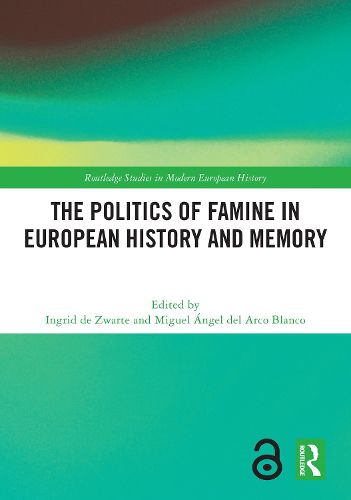Readings Newsletter
Become a Readings Member to make your shopping experience even easier.
Sign in or sign up for free!
You’re not far away from qualifying for FREE standard shipping within Australia
You’ve qualified for FREE standard shipping within Australia
The cart is loading…






This is the first book to bring together groundbreaking scholarship focusing on the various ways in which famines result from political decision-making, and how the threat, occurrence, relief, or memory of famine is instrumentalized as a political and military tool.
Contributions to this volume reveal the complexities, variations, and motivations behind the instrumentalization of famine by political actors and regimes, and how the politics of perpetrating hunger and the politics of relieving it have often been intertwined. They also address how famine legacies have been subsequently politicized in public debates, educational practices, and popular media; and how these socially and politically constructed memories and myths, in turn, have shaped broader narratives about hunger and humanitarianism both in history and today.
The Politics of Famine in European History and Memory provides a crucial resource for scholars and students from all disciplines interested in the study of famines, as well as those interested in the history of war and troubled pasts more generally.
$9.00 standard shipping within Australia
FREE standard shipping within Australia for orders over $100.00
Express & International shipping calculated at checkout
This is the first book to bring together groundbreaking scholarship focusing on the various ways in which famines result from political decision-making, and how the threat, occurrence, relief, or memory of famine is instrumentalized as a political and military tool.
Contributions to this volume reveal the complexities, variations, and motivations behind the instrumentalization of famine by political actors and regimes, and how the politics of perpetrating hunger and the politics of relieving it have often been intertwined. They also address how famine legacies have been subsequently politicized in public debates, educational practices, and popular media; and how these socially and politically constructed memories and myths, in turn, have shaped broader narratives about hunger and humanitarianism both in history and today.
The Politics of Famine in European History and Memory provides a crucial resource for scholars and students from all disciplines interested in the study of famines, as well as those interested in the history of war and troubled pasts more generally.